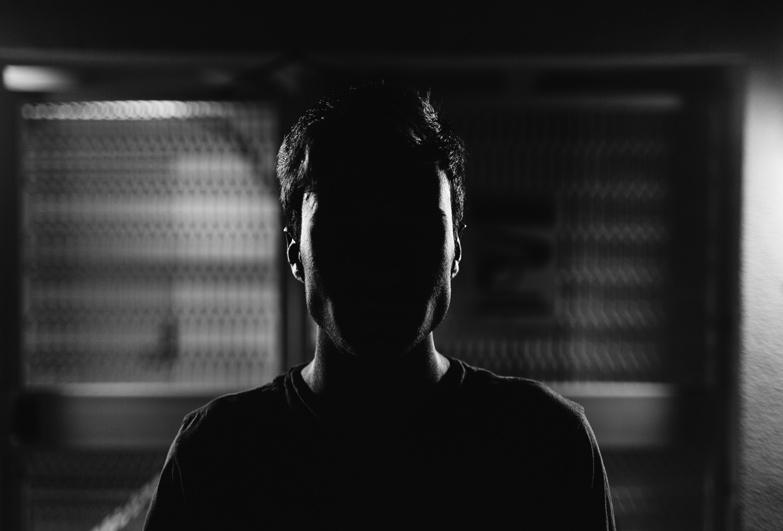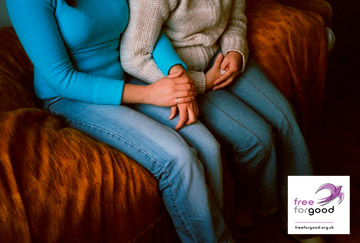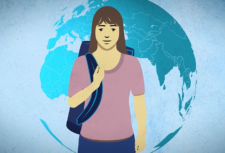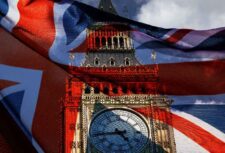Disclaimer: This article is more than 5 years old, and may not include the most up-to-date information or statistics. Please verify information with more recent sources as needed, and if you have any questions contact our Press Office.
Coordinator of the Anti-Trafficking Monitoring Group Anna Sereni explains how the UK’s immigration policy fails slavery survivors

10 May 2018
PK – his full name can’t be disclosed for legal reasons – was sold into slavery as a child at the age of three after his mother died in his native Ghana. When he was 25, he was trafficked to the UK and forced to work in a warehouse for up to 15 hours per day, subjected to mental and verbal abuse, and given limited amounts of food.
Like many other victims of slavery, his story is sad and painful. But it’s what happened to him after he escaped slavery that really not only is heart-breaking, but also unfortunately very typical for many slavery survivors in Britain.
After his escape he was referred to the National Referral Mechanism (NRM), a government service designed to signpost victims to relevant support services. He applied for Leave to Remain in the UK as a victim of trafficking – he felt too traumatised to consider going back to a country he only knew from his slavery experience, where he didn’t really know anyone beside his first captors. But despite accepting his account, the Home Office decided that rather than supporting him so that he could recover from his trauma, it would deport him back anyway.
PK, with the help of his lawyers, appealed this decision and fought to stay in the UK, and the recent judgment of the Court of Appeals unanimously ruled in his favour.
The Court ruled that the Home Office’s guidance on granting slavery victims residency in the UK is unlawful and failed to reflect the obligations imposed by the Council of Europe’s convention action against trafficking, to which the UK is committed. The judges decided that the Home Office set the bar unnecessarily high for allowing slavery survivors to stay in the UK and try to rebuild their lives free from exploitation.
This case highlights the Government’s tough anti-immigration policies’ disastrous effect on slavery victims. Treating them like criminals rather than vulnerable victims of traumatic crime in need of long-term support. In the case of PK, this experience left him with “long-standing and physical health conditions”. It leaves hundreds of others in destitution and desperate need for basic support.

Help slavery victims be free for good
Tell your MP to support the Bill supporting victims of slavery in the UK to rebuild their lives.
Further chaos
In response to this landmark case the Home Office issued interim guidance in February 2018, stating that the victims of trafficking who want to stay in the UK will have to wait for any decisions until the government works out its response to the ruling in PK’s case. Over two months later this “interim” guidance is still in place.
But that’s not all. The government didn’t inform safe houses and organisations supporting the victims that they should continue to support people under the government care contract until new guidance is issued, and it took a parliamentary question for the Government to confirm that they would have to seek an extension to support in each individual case.
This makes the survivors wait in a legal limbo, for an absolution that may never come. It means that there is no guarantee of even basic support for people who have been identified as victims. With no legal status confirmed, they can’t legally work or access basic benefits, leaving people at real risk of being left without any support and at risk of re-trafficking.
The case of PK, along with its fallout, demonstrates why more than ever we need the Modern Slavery (Victim Support) Bill proposed by Lord McColl of Dulwich, currently going through the Parliament to be passed. The Bill would give victims a guarantee of support in their journey to be free for good.
As things stand, victims continue to depend on an inefficient, impractical and uncoordinated mechanism of support. When they escape their traffickers, victims put their faith in the government to protect them. Instead, they receive no guarantee for their future and are often put at further risk.
This cannot continue and that’s why we need your help. Please ask your MP to support the Victim Support Bill and help thousands of victims of trafficking in the UK be free for good.
What the Bill is proposing:
- It provides a guarantee for support for 12 months after a person receives a positive decision identifying them as victim.
- It grants the victims leave to remain in the UK for the period of recovery should they wish, which allows victims the time to create some normality in their new lives in freedom.
- It specifies the minimum standards of support for victims, from appropriate accommodation and financial assistance, to access to social, medical, psychological and legal care.
- It puts these standards of support into law, making it difficult for any future government change them.
Anna Sereni is the Co-ordinator of the Anti-Trafficking Monitoring Group, a coalition of organisations, which Anti-Slavery hosts, monitoring the UK Government’s implementation of anti-slavery legislation and policies. You can follow her on Twitter at @sereni_anna.

Help slavery victims be free for good
Tell your MP to support the Bill supporting victims of slavery in the UK to rebuild their lives.





